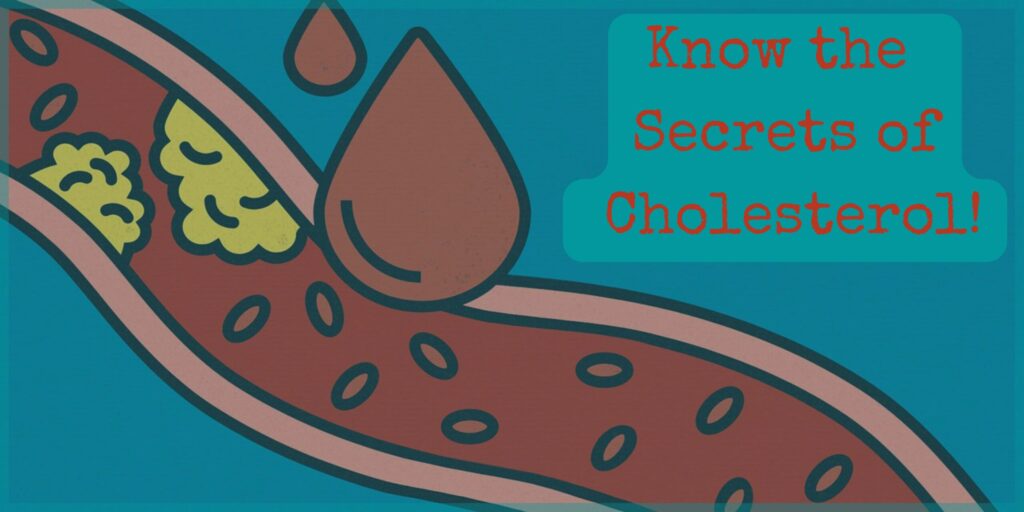Cholesterol in the human body
Cholesterol in the human body is explicated completely in this post. Cholesterol is a viscous component present in the blood, and the body requires cholesterol to produce strong cells. However, excessive cholesterol levels might raise the likelihood of cardiovascular illness. With elevated cholesterol, fatty layers may accumulate in the blood arteries. At some point, these deposits will expand to the point that it will be impossible for sufficient blood to pass through your arteries. These deposits may sometimes unexpectedly break apart, resulting in the formation of a clot that can lead to a heart attack or stroke. It is possible to inherit high cholesterol, but more often than not, it is the consequence of leading an unhealthy lifestyle, which makes it both avoidable and curable.
High cholesterol may be helped to normal levels by following a nutritious diet, engaging in regular exercise, and, in some cases, using medication. A blood test is the sole method to determine whether or not someone has high cholesterol since the condition does not present any symptoms.
Complications of high cholesterol
A condition known as atherosclerosis may develop as a consequence of high cholesterol because it leads to the harmful buildup of cholesterol and other deposits on the arterial walls. Plaques are deposits that may form in your arteries and restrict the amount of blood that can flow through them, which can lead to difficulties. If the cholesterol in the human body becomes excessive, it might cause chest pain. If the coronary arteries, which are the blood vessels that feed your heart with blood, are compromised, you may have chest discomfort known as angina, in addition to the various signs of coronary artery disorders.
Plaques have the potential to rip or rupture, which may result in the formation of a blood clot at the plaque-rupture site. This blood clot has the ability to obstruct the flow of blood or break off and clog an artery farther downstream. You will have a heart attack if the blood supply to any area of your heart is cut off. A stroke is an emergency medical condition that manifests itself when a blood clot prevents blood from reaching a portion of the brain.
When should one go to the doctor?
According to research, the initial cholesterol test for a person should take place between the ages of 9 and 11, and then it should be performed once every five years after that. People above the age of 65 should have their cholesterol checked once a year, while those between the ages of 45 and 65 and women between the ages of 55 and 65 should have their cholesterol checked every one to two years. If the results of your tests don’t fall within the acceptable limits, your physician may suggest doing the examinations more often. If you possess a background in your family of high cholesterol, heart disease, or other health conditions like diabetes or high blood pressure, your doctor may additionally recommend that you get testing at a more regular interval.
Cholesterol in the human body will increase if your body mass index (BMI) is 30 or more. It’s possible for even very young children to have high levels of cholesterol, although the condition is far more frequent in adults over the age of 40. As people grow older, their liver gets less capable of eliminating LDL cholesterol.
Preventive measures
Consuming an inappropriate amount of saturated fat, trans fat, or both may lead to dangerous levels of cholesterol in the human body. Trans fats are almost always present in packaged snacks and sweets, whereas saturated fats may be found in fatty cuts of meat and dairy products that include the full amount of milk fat. A poor diet, obesity, a lack of exercise, smoking, drinking alcohol, and becoming older are all factors that contribute to an increased risk of developing high cholesterol in the human body. The exact heart-healthy lifestyle modifications that may decrease your cholesterol might also protect you from ever developing high cholesterol.
To effectively avoid high cholesterol, you could indeed: Consume a low salt diet that emphasises fruits, vegetables, and whole grains; restrict your consumption of animal fats; and utilise healthy fats sparingly. It is necessary to shed excess weight and keep healthy body weight. You are required to get at least half an hour of exercise on at least five days of the week. You shouldn’t consume any alcohol at all or just in moderation, and you really need to break the habit of smoking. Finally, it would help if you learned how to control your tension and anxiety.



